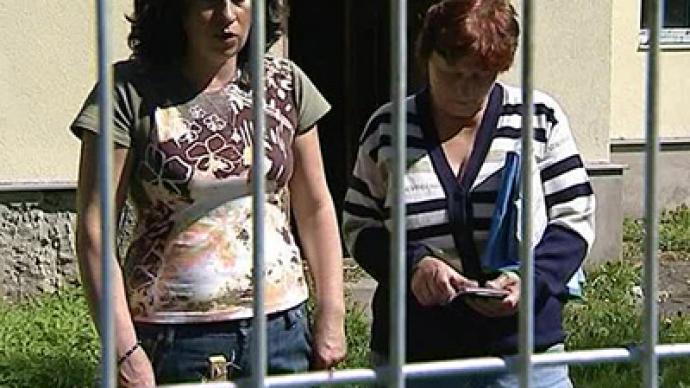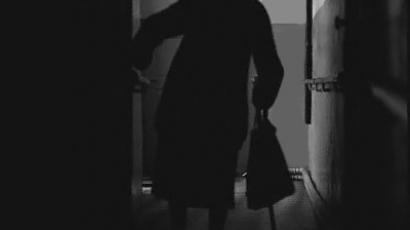Two Latvian women “incarcerated by NATO”

Two women living on a military base say they have become effectively prisoners due to the base’s security regulations. The Defense Ministry says the unfortunate residents will not accept any compensation offered for them to move out.
Zinaida Shcherbakova and her daughter Svetlana Dyachenko are the last residents of a 12-apartment block. It is located on the territory of a military base at Jaunolaine, a small railroad station some 10 km southwest of the capital, Riga.They have lived there for decades, but there is increasing pressure on them to move out. Now they have effectively been turned into prisoners, they say. They cannot have a job or receive treatment in a hospital, because if they leave the territory, they will not be allowed back in. They rely on friends outside to bring them food and water, which they cannot even cook.“It’s a prison! We have to abide to the rules of a top security institution! Rules for prisoners! What are we guilty of!?” outraged Svetlana told Vesti TV channel.Their home used to house Soviet officers and their families, including the Shchebakovs. After the base changed hands in 1994, it went into legal limbo, since the new authorities refused to take in into their administration. Over the years most of the residents moved out, but some did not.The living conditions quickly deteriorated in 2009, when the base was chosen to host NATO headquarters, and the Defense Ministry started implementing stricter security. They dismantled a water pump, which supplied the few remaining residents with water, cut off electricity, leveled several sheds and jammed mobile phones. The effort culminated last April, when the territory was fenced and a new clearance system was implemented.“There is no physical force used against my clients, but the psychological pressure is great,” Yulia Bodareva, a lawyer representing the family, told the Latvian daily Chas. “There’s a waiver for the apartment waiting at the checkpoint, and Shcherbakova will be allowed to leave and come back only if she signs it.”The ministry says it has been generous by allowing the people occupy their old home with no legal ground for it.“The building has no residential legal status, the municipality rejected it. The residents received warnings that they must leave in 2003 and in 2009. I am responsible for the object in a technical way and I am doing my duty,” the base’s chief security officer, Ilgonis Klavins, told the newspaper.In mid-May there were four people still living in the controversial building, but by early June there were only two.The military say they have offered several options and are ready to provide aid for them move, but they will not accept these alternatives.“The ombudsman found no human rights violation in the situation. The ministry has to keep the territory in order, and that’s what we do. If they had accepted the settlement they were offered earlier, the situation would not have arisen. Now we are out of options,” Defense Ministry’s press service commented.The women said they would agree to move if the Defense Ministry provides them with a new place to live in the same region. But what the ministry suggested was moving to a region near the border with Estonia, where there is high unemployment and plenty of unoccupied homes.The “prisoners” have filed two lawsuits against the ministry, demanding free access to their home.














